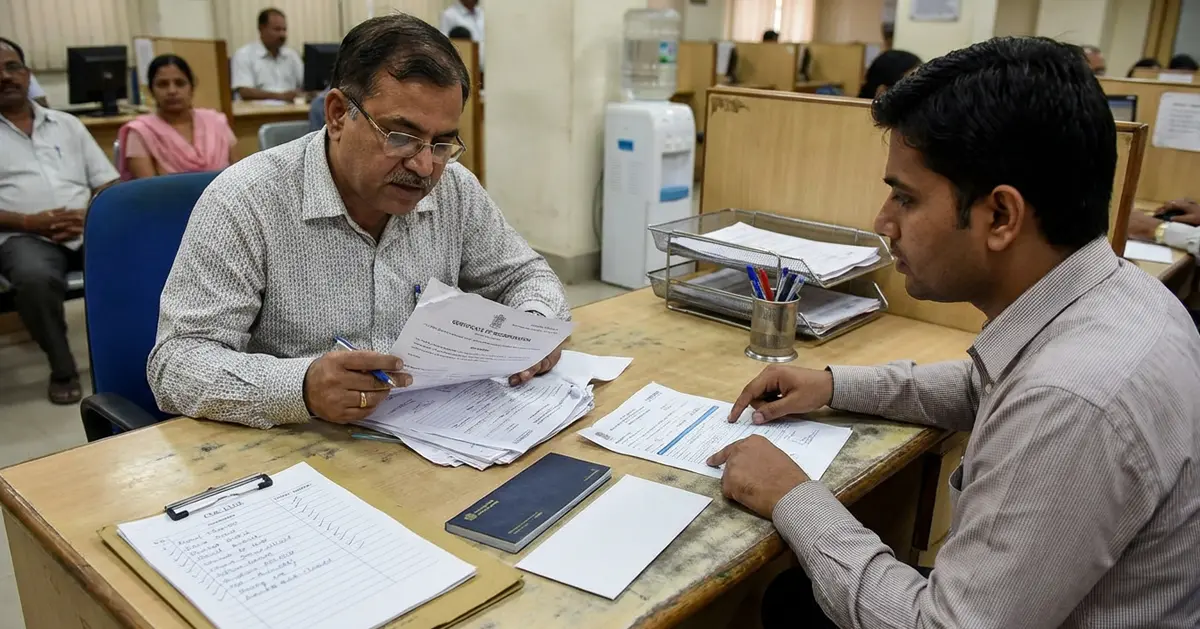
Designated Partner Identification Number (DPIN): Everything You Need to Know
In the dynamic landscape of Indian business, compliance and transparency are paramount. The Designated Partner Identification Number (DPIN) is a critical component for businesses, especially Limited Liability Partnerships (LLPs), operating in India. Understanding the DPIN is essential for anyone involved in or considering becoming part of an LLP. This comprehensive guide explores the significance, application process, and its regulatory aspects.
What is a Designated Partner Identification Number (DPIN)?
The Designated Partner Identification Number (DPIN) is a unique eight-digit identification number allotted by the Ministry of Corporate Affairs (MCA) to individuals appointed as designated partners in a Limited Liability Partnership (LLP). This serves as a mandatory requirement for designated partners, ensuring their identification and compliance with statutory regulations.
Legal Framework
The Limited Liability Partnership Act, 2008 governs the Designated Partner Identification Number (DPIN), and the Companies Act, 2013 regulates its provisions. As per these laws, obtaining a DPIN is compulsory for all designated partners in an LLP before they can commence operations.
Who Needs a DPIN?
Anyone looking to be a designated partner in a Limited Liability Partnership (LLP) or a partner in a partnership firm needs a DPIN. It’s required for both Indian nationals and foreign nationals who are involved in such partnerships.
Eligibility Criteria for Obtaining DPIN
The Designated Partner Identification Number (DPIN) is required for:
- Individuals intending to become designated partners in an LLP.
- Existing partners who are appointed as designated partners in an LLP.
- Foreign nationals planning to be designated partners in an Indian LLP.
Types of Organizations
The applicability of the Designated Partner Identification Number (DPIN) is specific to certain organizational structures:
- Limited Liability Partnerships (LLPs): Mandatory for all designated partners.
- Traditional Partnerships and Proprietorships: DPIN is not applicable.
- Companies: Require a Director Identification Number (DIN) instead of a DPIN.
Importance of DPIN
Below are the key factors that highlight the importance of DPIN:
Regulatory Compliance
The Designated Partner Identification Number (DPIN) ensures compliance with Indian corporate laws. It allows regulatory bodies to maintain accurate records of designated partners, enforce accountability, and monitor activities within LLPs. Possessing a DPIN is a legal requirement, and failure to obtain one can result in penalties.
Identification and Transparency
Having a Designated Partner Identification Number (DPIN) enhances transparency in business operations. It provides a unique identity to designated partners, facilitating clear identification in all official documentation and correspondence. The DPIN fosters trust among stakeholders by promoting open business practices.
DPIN vs. DIN (Director Identification Number): Key Differences
While both the DPIN and the Director Identification Number (DIN) serve as identification numbers, they are used in different contexts.
| Criteria | DPIN | DIN |
| Full Form | Designated Partner Identification Number | Director Identification Number |
| Applicable To | Designated Partners in LLPs | Directors in Companies |
| Governing Law | Limited Liability Partnership Act, 2008 | Companies Act, 2013 |
| Purpose | Identification of designated partners in LLPs | Identification of directors in companies |
| Application Form | DIR-3 Form | DIR-3 Form |
Understanding When to Use DPIN and DIN
- Use the Designated Partner Identification Number (DPIN) when dealing with LLPs.
- Use the Director Identification Number (DIN) when dealing with companies.
- You can hold both a DPIN and a DIN if you are involved in an LLP and a company.
How to Obtain a DPIN: Step-by-Step Guide
Obtaining a Designated Partner Identification Number (DPIN) involves several steps:
1st Step: Acquire a Digital Signature Certificate (DSC)
- Why: A DSC is required to sign electronic documents securely.
- How: Apply through a certified authority authorized by the MCA.
2nd Step: Prepare Required Documents
- Proof of Identity: PAN Card, Passport (for foreign nationals).
- Proof of Address: Aadhaar Card, Voter ID, Driving License, recent utility bills.
- Photograph: Passport-sized color photograph.
- Declaration: Self-declaration and certification by a practicing professional.

3rd Step: Register on MCA Portal
- Visit the Ministry of Corporate Affairs website at www.mca.gov.in.
- Click on ‘Register’ to create an account.
4th Step: Fill DIR-3 Form
- Download and fill DIR-3 Form for the Designated Partner Identification Number (DPIN) application.
- Provide personal, contact, and educational details.
5th Step: Attach Documents
- Attach scanned copies of required documents.
- Ensure all documents are attested by a practicing professional.
6th Step: Sign and Certify
- Affix your Digital Signature Certificate on the form.
- Get the form certified by a Company Secretary, Chartered Accountant, or Cost Accountant.
7th Step: Submit the Application
- Log in to the MCA portal.
- Upload the completed DIR-3 Form.
8th Step: Pay the Fees
- Pay the application fee of INR 500 online.
9th Step: DPIN Allotment
- The system allots and communicates the Designated Partner Identification Number (DPIN) via email upon successful verification.
Application Process
Here are the steps to follow for obtaining a DPIN:
- Online Method: Recommended for its efficiency and speed. The MCA portal processes the entire DPIN application.
- Offline Method: Not commonly used due to digital advancements. Involves submitting physical forms to the MCA office.
Fees and Timelines
The following outlines the fees and timelines for obtaining a DPIN.
- Application Fee: INR 500 for the DPIN application.
- Processing Time: Typically 1-2 working days after submission.
- Payment Methods: Online payment via net banking, credit/debit cards.
Updating or Renewing DPIN (Amendments and Changes)
If there are changes to your personal details, you must update your DPIN information.
Process:
- Fill Form DIR-6 for changes or corrections.
- Attach supporting documents reflecting the changes.
- Submit the form online with a DSC and professional certification.
Renewal Procedures
- The DPIN is valid for a lifetime.
- The DPIN does not require renewal unless it has been deactivated or surrendered.
- Annual Compliance: Ensure timely filing of annual returns and compliance documents to keep the DPIN active.
Common Challenges and Solutions
Here, we’ll explore common challenges encountered during the DPIN process and provide practical solutions to resolve them efficiently.
Frequently Encountered Issues
- Discrepancies in Documents
- Mismatched information across different documents can lead to rejection of the DPIN application.
- Technical Errors
- Issues with the MCA portal or Digital Signature Certificate (DSC) can hinder the application process.
- Non-Attestation of Documents
- Failing to get documents attest by a practicing professional can delay the application process.
Troubleshooting Tips
Below are some helpful tips to address common issues and ensure a smooth DPIN application process:
- Verify Information: Double-check all details for accuracy before submission.
- Update Documents: Ensure all identification and address proofs are up-to-date and consistent.
- Professional Assistance: Seek help from a Company Secretary, Chartered Accountant, or Cost Accountant.
- Technical Support: Contact MCA support for portal-related issues during the Designated Partner Identification Number (DPIN) application.
Conclusion
The DPIN is an indispensable element for designated partners in India’s LLPs. It not only fulfills legal obligations but also promotes transparency and accountability within the business environment. By understanding the importance and the process of obtaining the Designated Partner Identification Number (DPIN), individuals can ensure seamless integration into the corporate framework and contribute effectively to their LLP’s success.
Securing a DPIN is a straightforward process when approached methodically. With this comprehensive guide, you are now ready with the knowledge to obtain, update, and manage your DPIN efficiently.
Frequently Asked Questions
A: An individual can have only one DPIN. The law prohibits possessing multiple DPINs.




